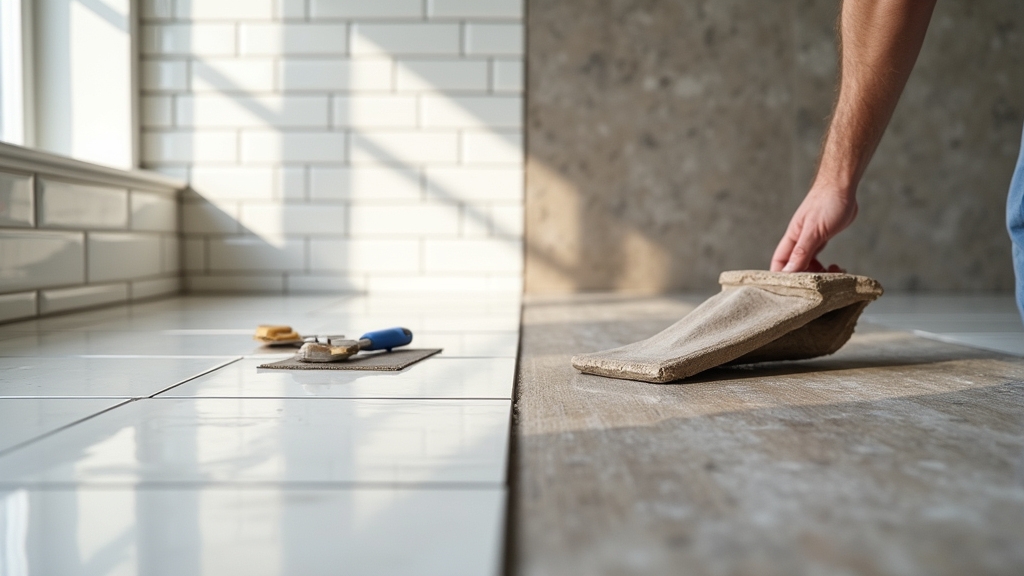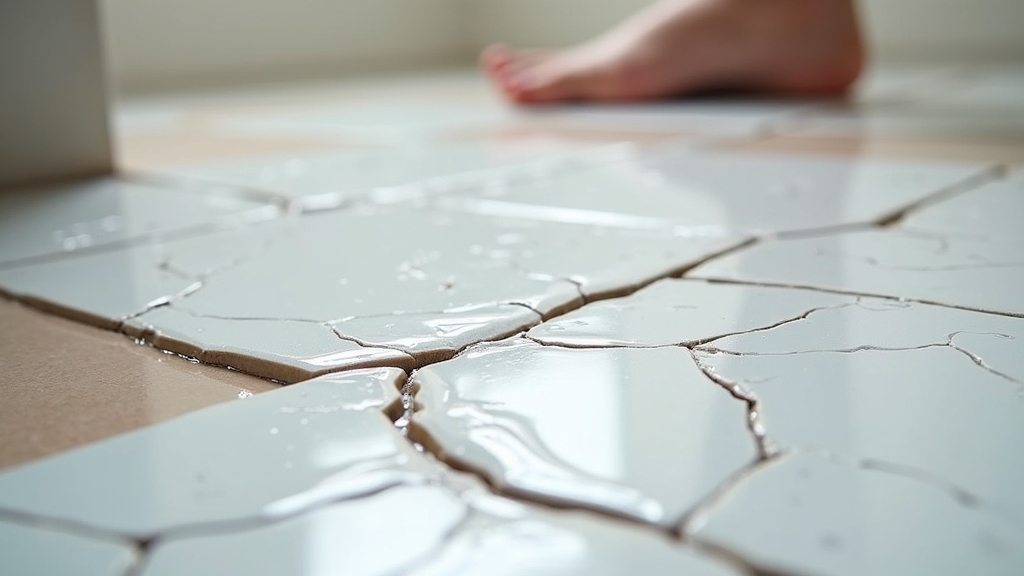When you walk into a beautifully tiled home, it’s easy to appreciate the colors, patterns, and finishes—but what many people don’t realize is that wall and floor tiles are not interchangeable. Each type is designed for a specific purpose, with differences in durability, thickness, texture, and installation methods. Choosing the wrong tile for a particular surface can lead to cracks, safety issues, or unnecessary wear over time.
At Atlanta Tile Install, we help homeowners across Metro Atlanta understand the technical and design differences between wall and floor tiles so every space looks and performs beautifully. Here’s what you should know before starting your next tile project.
What Makes Wall and Floor Tiles Different?

The main distinction between wall and floor tiles lies in their strength, thickness, and slip resistance. Floor tiles are designed to withstand foot traffic and impact, while wall tiles are meant primarily for decoration and light surface protection. Let’s look at these differences in more detail.
1. Thickness and Strength
Floor tiles are typically thicker and denser than wall tiles because they must support weight and resist heavy wear. They’re manufactured under higher pressure and fired at higher temperatures for extra durability.
Wall tiles, on the other hand, are thinner and lighter—making them easier to install vertically. They’re not built to handle pressure or impact, so using them on floors can cause cracking and breakage.
| Tile Type | Average Thickness | Primary Function |
| Wall Tile | 6–10 mm | Decorative and lightweight |
| Floor Tile | 8–12 mm | Durable and load-bearing |
2. Surface Texture and Slip Resistance
Floor tiles are textured or matte-finished to prevent slips, especially in moisture-prone areas like bathrooms or kitchens. Wall tiles are often glossy and smooth, reflecting more light and enhancing visual appeal.
If you’re designing a shower or bathroom, combining both is ideal: textured floor tiles for safety and glossy wall tiles for easy cleaning and style. Our shower tile installation services can help you find the perfect balance between function and aesthetics.
3. Design and Aesthetic Purpose
Wall tiles are primarily decorative. They come in a wider range of colors, patterns, and finishes—perfect for creative layouts, accent walls, or backsplashes.
Floor tiles focus more on functionality, though modern designs like porcelain wood-look or patterned encaustic tiles provide both style and strength.
If you want a cohesive look that blends walls and floors seamlessly, our custom tile design experts can create coordinated layouts for your space.
4. Weight and Installation Method
Wall tiles are lighter for easier vertical application, requiring specific adhesives to stay in place securely. Floor tiles are heavier and demand precise leveling to avoid uneven surfaces.
Each installation type requires professional preparation—proper subfloor or wall treatment, correct adhesives, and adequate spacing for grout lines. Our skilled team at Atlanta Tile Install ensures flawless results for every project.
5. Durability and Maintenance
Because they handle constant use, floor tiles are tested for hardness and wear resistance under industry standards such as PEI (Porcelain Enamel Institute) ratings. Wall tiles aren’t rated for impact or abrasion since they don’t encounter the same stress.
Floor tiles also resist scratches, stains, and moisture better. Wall tiles, though less durable, are easy to clean and maintain their shine for years. Both are long-lasting when properly installed and maintained.
How to Know Which Tile to Use Where
Kitchens
In kitchens, use porcelain or ceramic floor tiles that resist spills and foot traffic. For walls and backsplashes, glossy ceramic or glass tiles work perfectly—they’re decorative, easy to clean, and reflect light beautifully.
Our kitchen tile installation services ensure both durability and design harmony.
Bathrooms
Bathrooms demand tiles that can handle high humidity. Use matte porcelain or textured tiles on the floor for safety, and glossy ceramic or glass tiles on walls and showers for easy maintenance.See how our bathroom tile installation and shower tile installation options enhance comfort and elegance.
Living Rooms and Entryways
For high-traffic zones like living rooms or hallways, durable porcelain or stone tiles are ideal. You can use accent wall tiles to add visual texture without compromising practicality. If you’re looking for cohesive floor-to-wall continuity, explore our flooring installation services.
Fireplaces and Accent Walls
Fireplace surrounds benefit from heat-resistant ceramic or natural stone tiles. Wall tiles here serve a purely decorative role but must still withstand moderate temperature changes. Our fireplace tile installation service can help you achieve a stunning focal point.
Outdoor and Pool Areas
Exterior applications require specialized tiles with low water absorption and high slip resistance. Porcelain pavers or stone tiles are perfect for patios and pool decks.Our pool tile installation team ensures your outdoor spaces are safe, stylish, and built to last through Atlanta’s weather conditions.
Can You Use Floor Tiles on Walls?
Yes—floor tiles can often be used on walls, but not vice versa. Since floor tiles are stronger and heavier, they work well for accent walls or modern industrial designs. However, because of their weight, professional installation is essential to prevent detachment or stress on the wall structure.
Why You Shouldn’t Use Wall Tiles on Floors

Wall tiles are too thin and fragile to bear weight. Installing them on floors can cause cracking within months. Their smooth surfaces are also dangerously slippery when wet, especially in kitchens or bathrooms.Always check tile ratings and intended applications before purchasing, or consult with experts like Atlanta Tile Install for professional guidance.
Quick Comparison Chart
| Feature | Wall Tile | Floor Tile |
| Strength | Light-duty | Heavy-duty |
| Thickness | 6–10 mm | 8–12 mm |
| Slip Resistance | Low | High |
| Surface Finish | Glossy or decorative | Matte or textured |
| Installation Surface | Vertical walls | Horizontal floors |
| Durability | Moderate | High |
| Best Use | Backsplashes, showers, accent walls | Kitchens, bathrooms, entryways, patios |
Benefits of Professional Installation
Even with high-quality tiles, proper installation determines the final outcome. Poor alignment, uneven surfaces, or incorrect adhesive use can cause early tile failure.With Atlanta Tile Install, every project is handled by skilled craftsmen who understand material requirements, local climate conditions, and aesthetic balance. Whether you’re in Lawrenceville, Sandy Springs, or Johns Creek, we deliver precise, reliable results.
Final Thoughts: Choose the Right Tile, Every Time
The key difference between wall and floor tiles comes down to strength, safety, and function. Floor tiles are engineered to endure daily use, while wall tiles are crafted for visual impact. Knowing how and where to use each ensures your home stays beautiful, safe, and long-lasting.
At Atlanta Tile Install, we bring design expertise and professional craftsmanship to every tile installation project—from bathroom renovations to kitchen upgrades, flooring installations, and custom designs.
Ready to start your next project? Contact us today or call (678) 981-6192 for a free consultation and discover the perfect tile solution for every room in your home.

